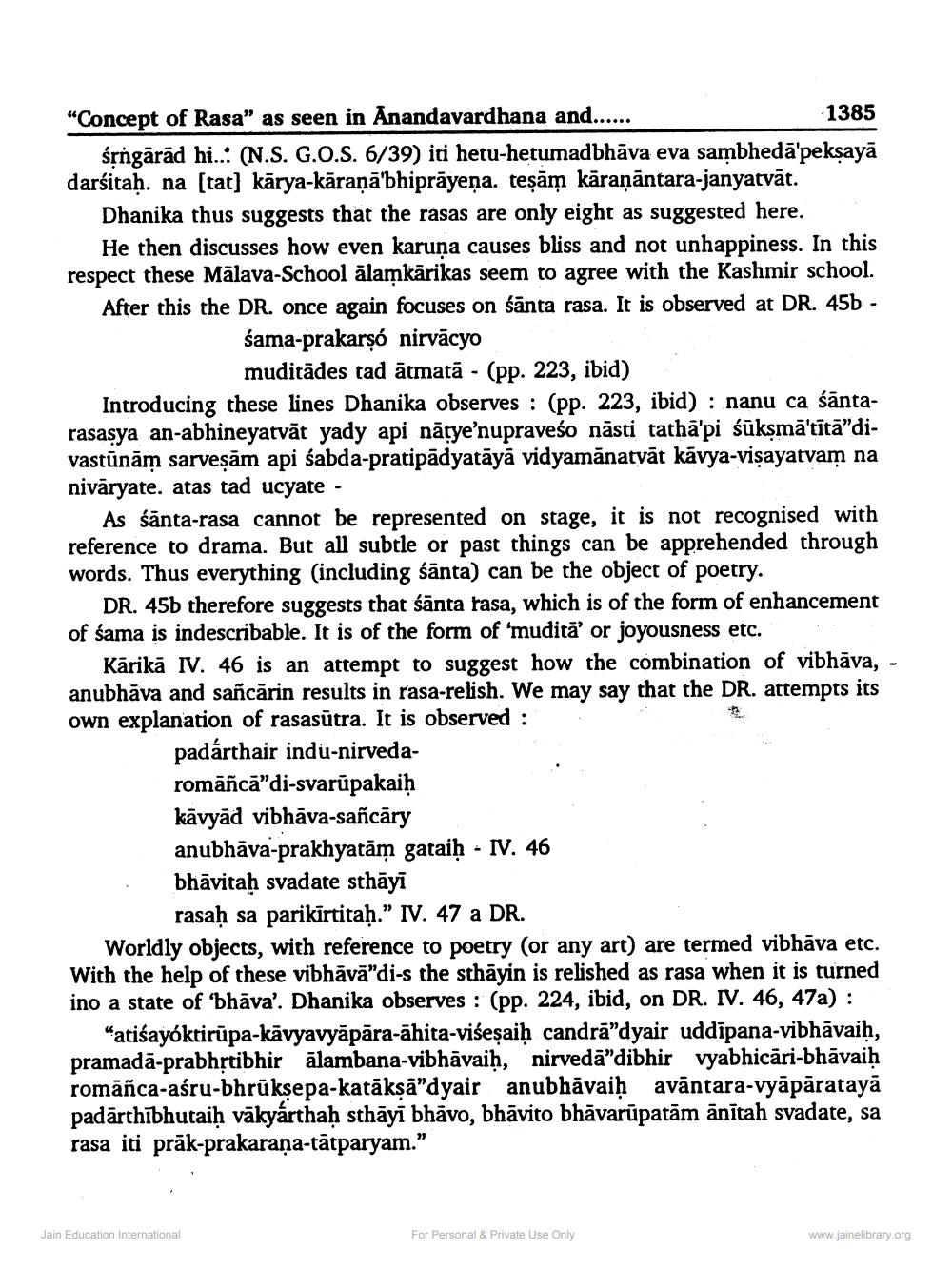________________
"Concept of Rasa” as seen in Anandavardhana and......
1385 śộngārād hi.: (N.S. G.O.S. 6/39) iti hetu-hetumadbhāva eva sambhedā'pekṣayā larśitaḥ. na (tat] kārya-kāraņā'bhiprāyeņa. teșām kāraṇāntara-janyatvāt.
Dhanika thus suggests that the rasas are only eight as suggested here.
He then discusses how even karuna causes bliss and not unhappiness. In this respect these Mālava-School alamkārikas seem to agree with the Kashmir school. After this the DR. once again focuses on śānta rasa. It is observed at DR. 45b -
sama-prakarsó nirvācyo
muditādes tad ātmatā - (pp. 223, ibid) Introducing these lines Dhanika observes : (pp. 223, ibid): nanu ca śāntarasașya an-abhineyatvāt yady api nätye’nupraveśo nāsti tathā'pi sūksmā'tītā”divastūnām sarveșām api śabda-pratipādyatāyā vidyamānatvāt kāvya-visayatvam na nivāryate. atas tad ucyate -
As śänta-rasa cannot be represented on stage, it is not recognised with reference to drama. But all subtle or past things can be apprehended through words. Thus everything (including śānta) can be the object of poetry.
DR. 45b therefore suggests that śānta rasa, which is of the form of enhancement of sama is indescribable. It is of the form of 'muditā' or joyousness etc.
Karikā IV. 46 is an attempt to suggest how the combination of vibhāva, anubhāva and sancărin results in rasa-relish. We may say that the DR. attempts its own explanation of rasasūtra. It is observed :
padárthair indu-nirvedaromāñcā"di-svarūpakaiḥ kāvyād vibhāva-sañcāry anubhāva-prakhyatām gataiḥ - IV. 46 bhāvitaḥ svadate sthāyi
rasaḥ sa parikīrtitah.” IV. 47 a DR. Worldly objects, with reference to poetry (or any art) are termed vibhāva etc. With the help of these vibhāvā"di-s the sthāyin is relished as rasa when it is turned ino a state of 'bhāva'. Dhanika observes : (pp. 224, ibid, on DR. IV. 46, 47a):
"atiśayóktirūpa-kavyavyāpāra-āhita-višesaih candrā”dyair uddīpana-vibhāvaih, pramadā-prabhrtibhiralambana-vibhāvaih, nirveda"dibhir vyabhicāri-bhāvaih romāñca-aśru-bhrūksepa-katākṣā”dyair anubhāvaiḥ avāntara-vyāpāratayā padārthībhutaiḥ vākyárthaḥ sthāyi bhāvo, bhāvito bhāvarūpatām ānītah svadate, sa rasa iti prāk-prakaraña-tātparyam.”
Jain Education International
For Personal & Private Use Only
www.jainelibrary.org




